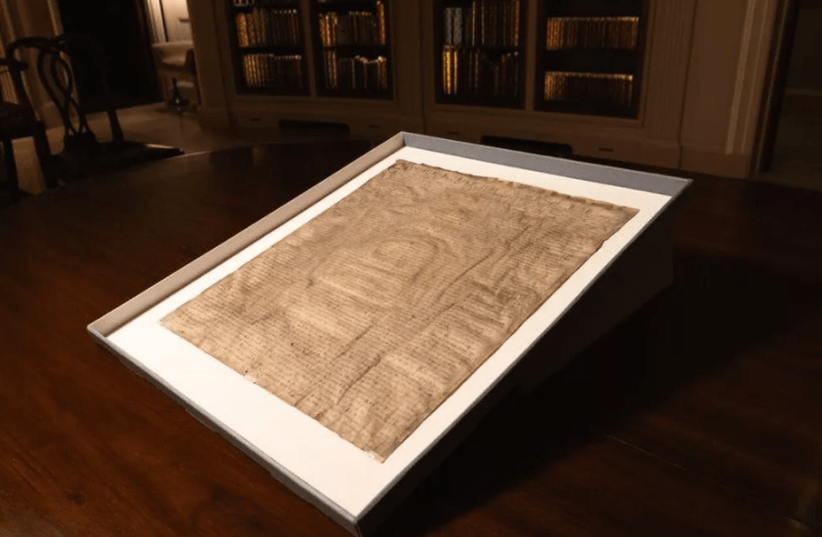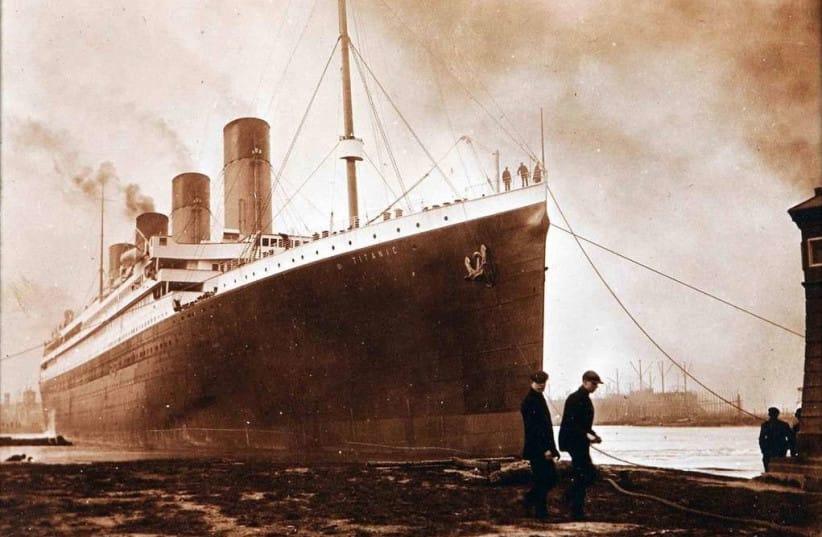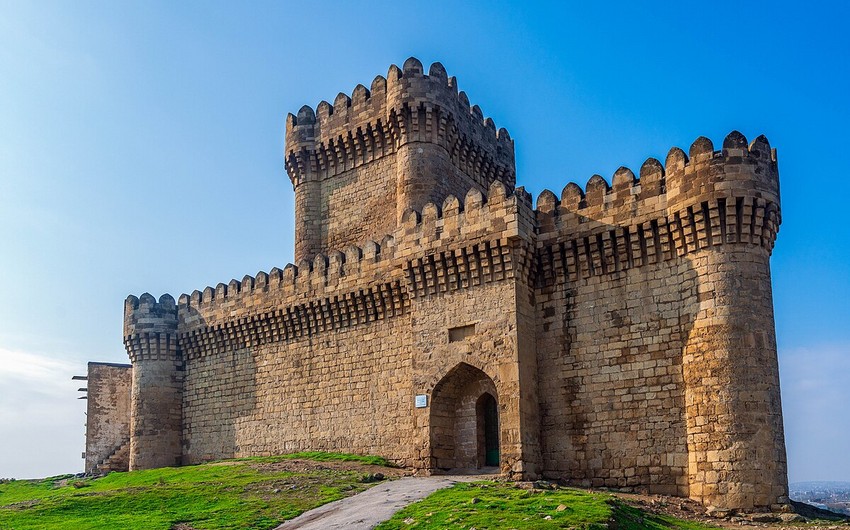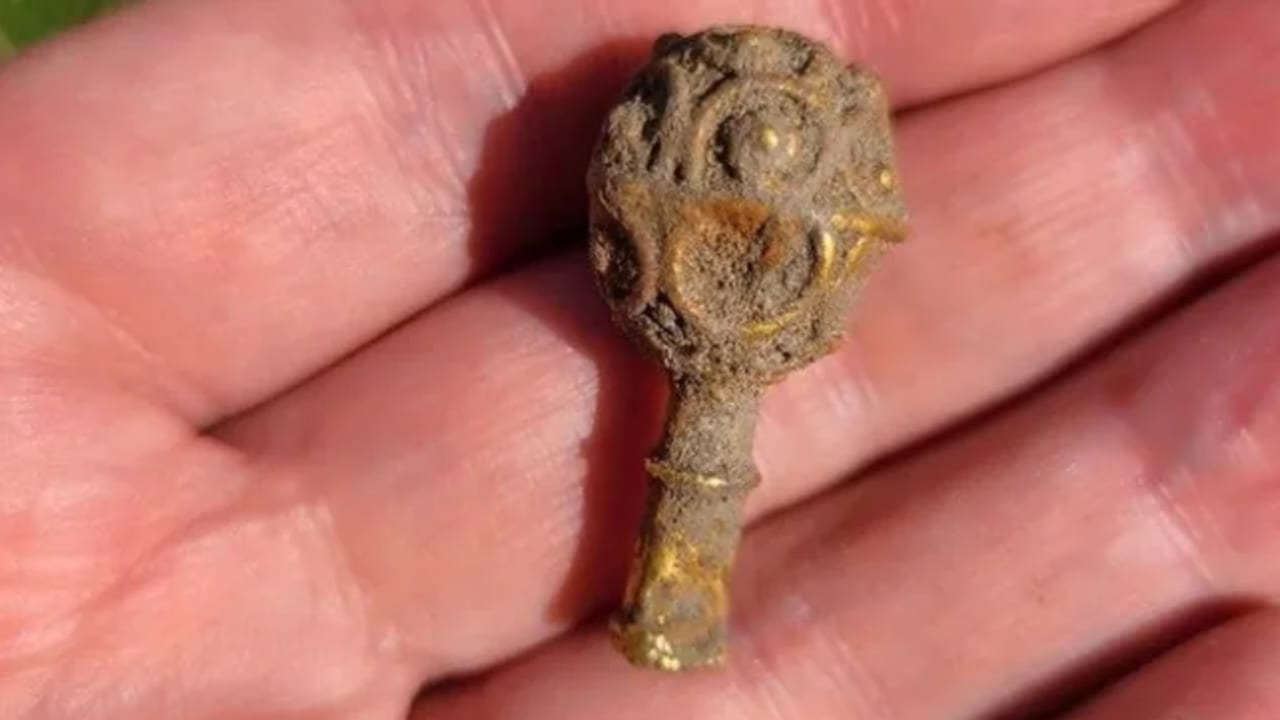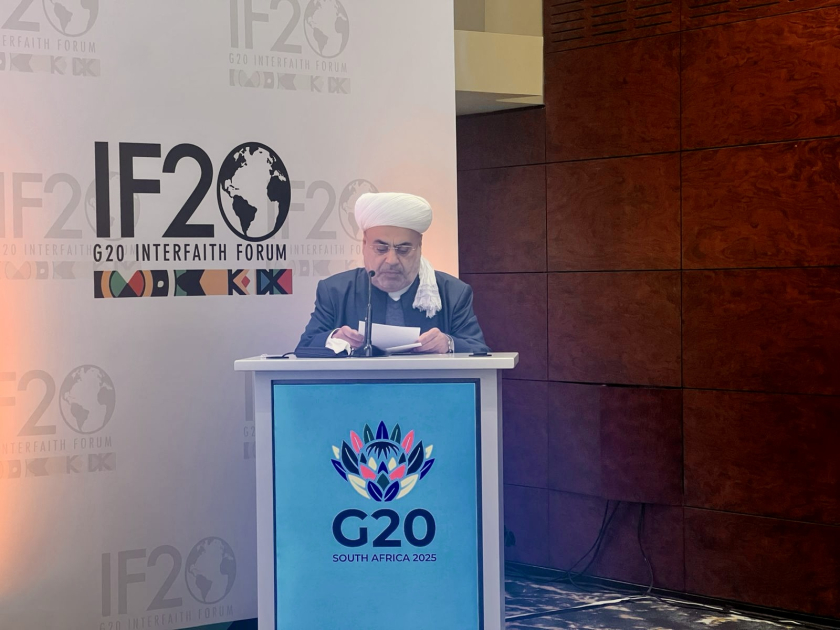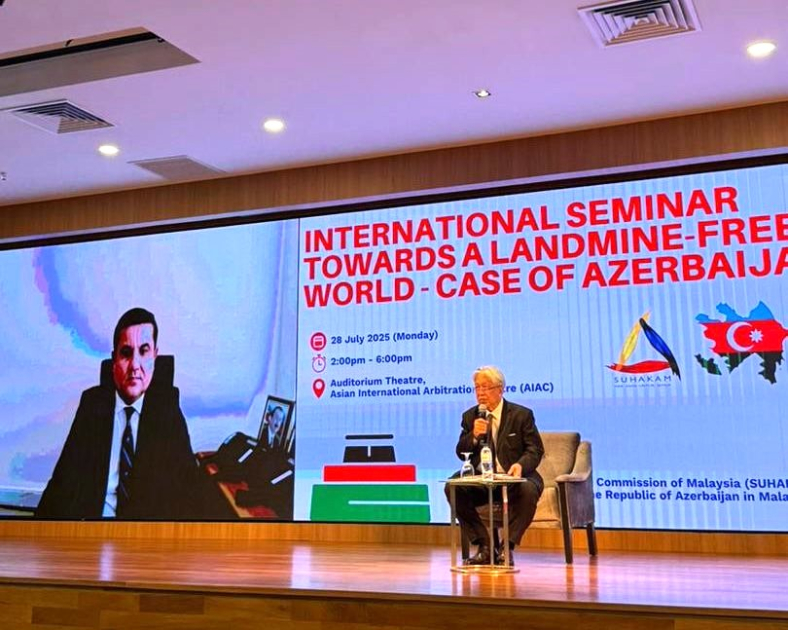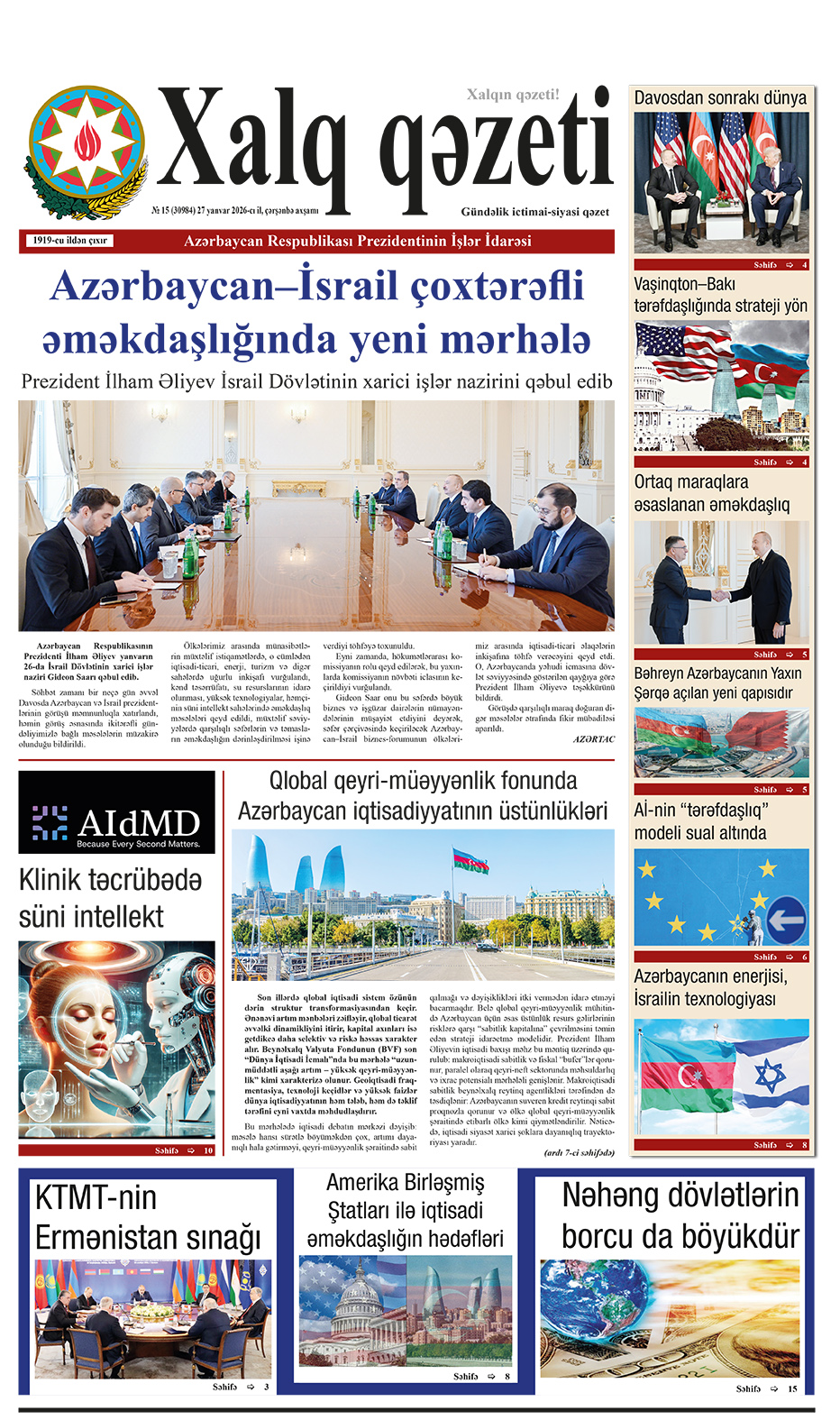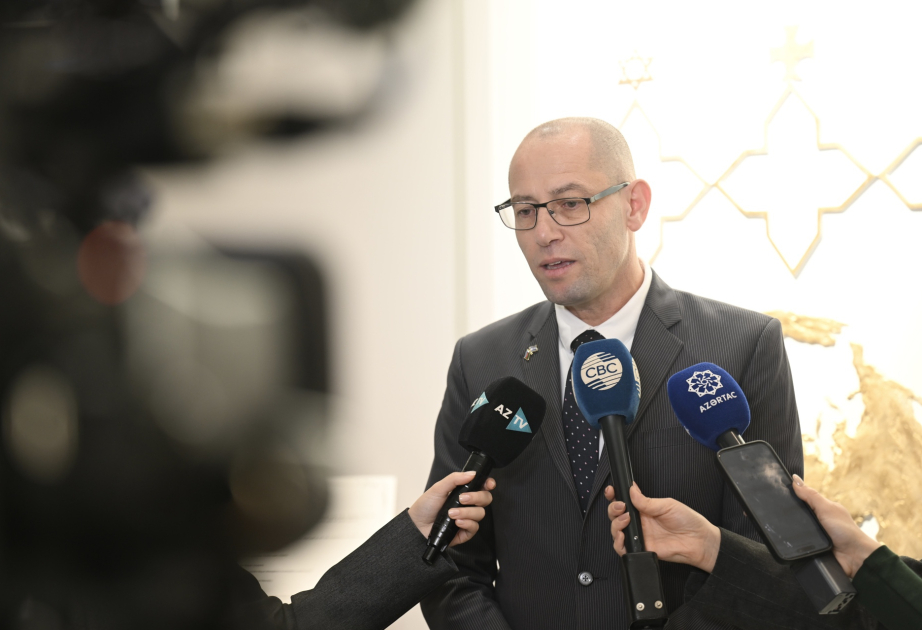By JERUSALEM POST STAFF
The manuscript is one of seven surviving originals from King Edward I's issue of the Magna Carta.
A rare original of the Magna Carta dating back to 1300 was discovered in the archives of Harvard Law School, where it had been mislabeled as a mere copy. For decades, Harvard University believed it possessed a simple reproduction of the historic document—a stained and faded parchment purchased in 1946 for $27.50.
Professor David Carpenter, a medieval history expert at King's College London, made the discovery while researching textual changes in later copies of the charter. While examining digitized images on the Harvard Law School Library website in December 2023, he came across the manuscript catalogued as HLS MS 172.
"My reaction was one of amazement and, in a way, awe that I should have managed to find a previously unknown Magna Carta," said Carpenter, according to NBC News. Recognizing its potential significance, he quickly contacted his colleague Nicholas Vincent, a professor of medieval history at the University of East Anglia, to investigate further.
The two academics collaborated to authenticate the manuscript, comparing it with six previously known originals from 1300. They discovered that the text matched, and the handwriting and dimensions were consistent with those of the other originals. "Everything about the document looked right: the layout, the text, the handwriting, and the large capital 'E' for Edwardus," said Vincent, according to The New York Times.
The document, penned in 1300 during the 28th year of King Edward I's reign, is now considered one of only seven surviving originals from that issue of the Magna Carta. Including this discovery, a total of 24 original Magna Carta manuscripts are known to exist.
Harvard Law School Library purchased the manuscript from London book dealer Sweet & Maxwell in 1946, unaware of its true significance. At the time of purchase, the document was wrongly dated as being made in 1327 and was considered a mere copy. A London bookseller had paid £42 for the document, about a fifth of the average annual income in the UK at the time, months before Harvard bought it for a fraction of that price.
Since its arrival at Harvard, the manuscript had attracted relatively little attention, remaining tucked away in the library with its true identity unknown. Amanda Watson, the assistant dean for library and information services at Harvard Law School, expressed excitement over the discovery. "We think of law libraries as places where people can come and understand the underpinnings of democracy," she said, according to NBC News.
The journey of the document to Harvard has been traced back to Air Vice-Marshal Forster "Sammy" Maynard, who inherited the manuscript from leading abolitionists Thomas Clarkson and John Clarkson, prominent campaigners against the slave trade. "There's a chain of connection there, as it were, a smoking gun, but there isn't any clear proof as yet that this is the Appleby Magna Carta. But it seems to me very likely that it is," said Vincent, according to The New York Times.
The Magna Carta, first issued by King John in 1215 during an open revolt by his barons, served as a peace treaty that guaranteed the liberties and rights of his subjects while establishing the principle that the king is subject to the law. It was reissued multiple times throughout history, including confirmations by King Edward I in 1297 and 1300.
The charter is regarded as a foundational text for the Declaration of Independence, the US Constitution, and international human rights law. Seventeen U.S. states have incorporated aspects of the Magna Carta into their laws, and the Bill of Rights includes several provisions thought to descend from it. "Magna Carta places the king under the rule of law. The head of state cannot simply go against somebody because he doesn't like them; he has to do it using the law," explained Vincent, according to BBC News.
The discovery has been hailed, especially in today's context. "To think that Magna Carta could inspire new generations of people to think about individual liberty and what that means and what self-governance means is very exciting," said Watson.
Given that a 1297 version of the Magna Carta sold at auction in 2007 for $21.3 million, the potential value of Harvard's newly identified original from 1300 is considerable. However, Harvard has no plans to sell the manuscript. "I can't imagine that we would ever sell it," Watson told The New York Times.
Both Carpenter and Vincent plan to visit Harvard Law School to see and touch the document for the first time. "The professors are hopeful Harvard's Magna Carta will soon be displayed to the public so its message and significance can be more widely known," BBC News reported.
"It's the best sort of thing that can happen to a librarian. This is our daily work—to digitize things, to preserve things, to save things, to open things up," said Watson. "Behind every scholarly revelation stands the essential work of librarians, who not only collect and preserve materials, but create pathways that otherwise would remain hidden."


